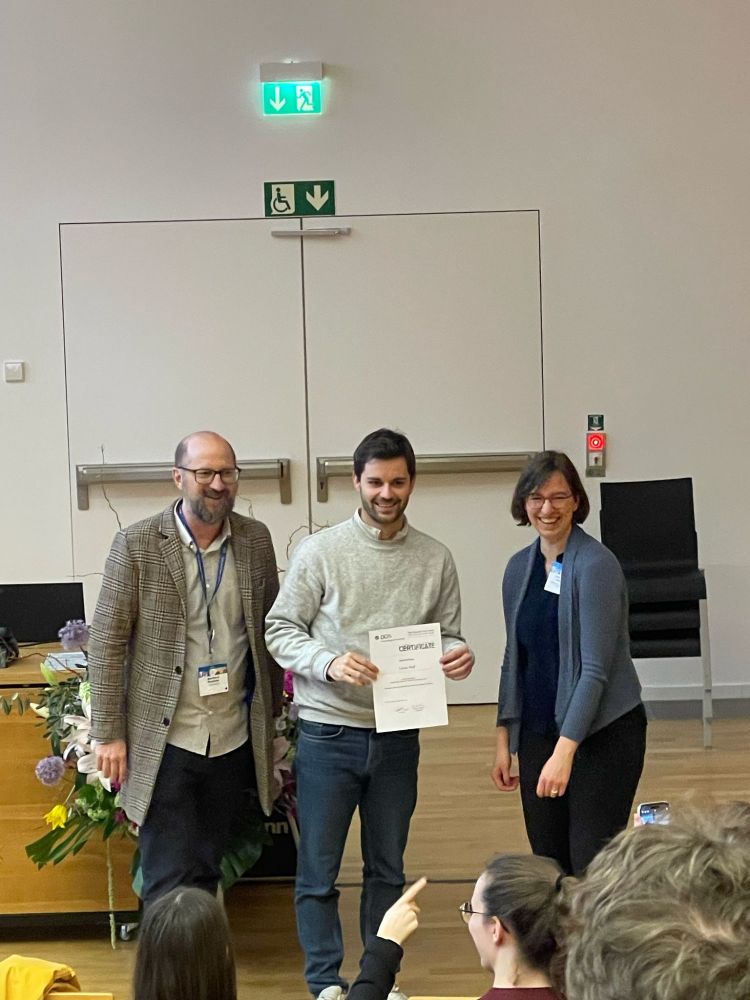
article cover page and abstract
New article in Cognitive Psychology with @thorstenpachur.bsky.social and Veronika Zilker: “How sampling strategies shape experience-based risky choice.”
We present a computational framework for information search and choice in decisions from experience. 1/4
doi.org/10.1016/j.co...
17.12.2025 10:32 —
👍 20
🔁 6
💬 1
📌 1
For all who use Bayesian hierarchical models, have a look at our new preprint, out now together with @linushof.bsky.social @nunobusch.bsky.social and @thorstenpachur.bsky.social
osf.io/preprints/ps...
10.09.2025 14:40 —
👍 18
🔁 12
💬 1
📌 0
(3/3) Across affect-poor (monetary) and affect-rich (medical) choices, the affect gap emerged similarly for younger and older adults. In addition, older adults were more risk-averse than younger adults, but only for the affect-poor choices, and not for the affect-rich choices.
14.08.2025 15:31 —
👍 0
🔁 0
💬 0
📌 0
(2/3) The affect gap is the phenomenon that when choosing between options whose outcomes trigger strong emotions (e.g., in medical choices), people pay less attention to probabilities and focus more on outcomes than in affect-poor choices—resulting in lower decision quality and higher risk aversion.
14.08.2025 15:31 —
👍 0
🔁 0
💬 1
📌 0

🚨 Do older adults make emotional decisions differently than younger adults? Our new article, led by @colleencfrank.bsky.social, in Psychology and Aging finds that the 'affect gap' in risky choice manifests similarly in younger and older adults. (1/3)
🔗 psycnet.apa.org/record/2026-...
14.08.2025 15:31 —
👍 5
🔁 0
💬 1
📌 0

3/3 Specifically, those who focused less on task-specific trade-offs (duration in TTO, probability in SG) showed larger gaps in their health state valuations. This highlights how attentional focus shapes preferences and suggests that shifting attention could influence health utility assessments.
22.07.2025 12:10 —
👍 0
🔁 0
💬 0
📌 0
2/3 We studied *why* time trade-off (TTO) and standard gamble (SG) tasks yield different health state valuations. Using process tracing, we found that differences in how people allocate attention across attributes—health states, durations, and probabilities—drive valuation gaps between TTO and SG.
22.07.2025 12:10 —
👍 0
🔁 0
💬 1
📌 0

💥 How bad is it to live with diabetes or be in a wheelchair? In a new article (Journal of Health Economics) led by Stefan Lipman, we link the puzzling gap between time trade-off and standard gamble valuations of health states to attention during preference construction.
1/3
🔗 doi.org/10.1016/j.jh...
22.07.2025 12:10 —
👍 3
🔁 0
💬 1
📌 0

Congratulations to @linushof.bsky.social from our lab @tum.de for being the runner-up at this year’s #teap2025 poster competition! His research shows that people search adaptively in decisions from experience.
14.03.2025 05:43 —
👍 14
🔁 5
💬 0
📌 0




